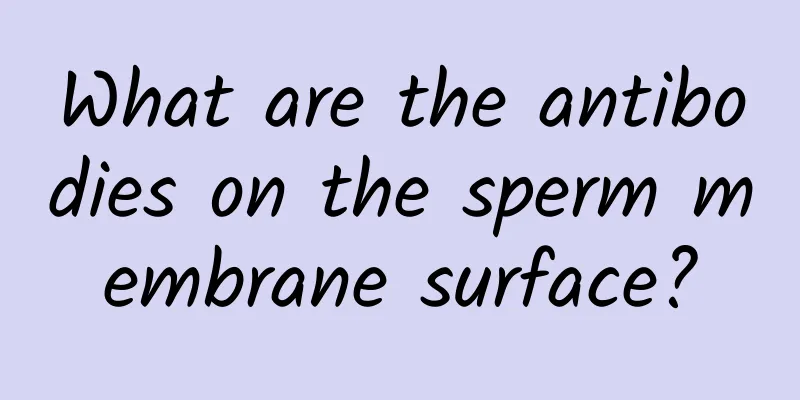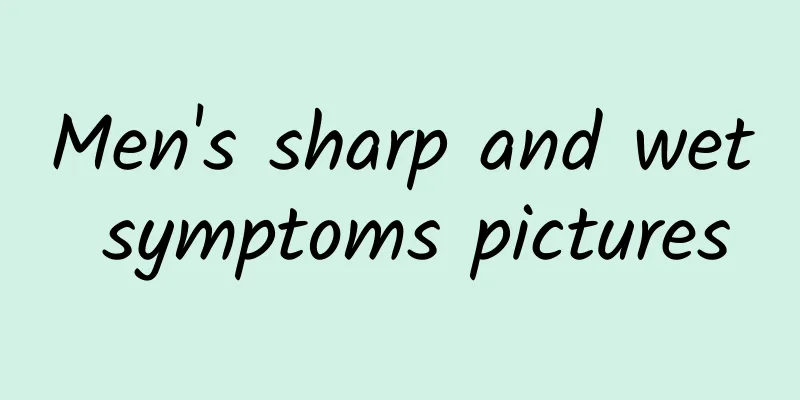How to treat testicular tumors?

|
The testicle is a very important part of the male reproductive organ. If there is a problem with the testicle, it is easy to lose the chance to become a father. This is the most worrying issue for male friends. Therefore, we remind everyone to pay more attention to the health of the testicles, detect the disease in time and treat it in time. Let's take a look at the symptoms and treatment of testicular tumors. 1. Enlarged testicles Most patients have varying degrees of testicular enlargement. Sometimes the testicles are completely replaced by tumors, with a hard texture and loss of normal elasticity. In the early stage, the surface is smooth, but in the late stage, it may be nodular and may adhere to the scrotum or even rupture. The scrotal skin may be dark red, and the surface often has tortuosity of blood vessels. If a tumor is occult, it is often felt in the abdomen, groin, etc., and the scrotum on the same side is empty. Some patients with testicular tumors also have hydrocele. 2. Pain Most patients lose testicular sensation and feel no pain. Therefore, it is generally believed that the tumor is a painless scrotal mass. It is worth noting that acute painful testicular tumors can also be seen in clinical practice, but they are often considered to be inflammation. The cause of pain is bleeding or central necrosis in the tumor, or pain caused by the testicular tumor invading the tissue outside the testicle. 3. Metastatic symptoms Testicular tumors mainly metastasize to lymph nodes, which are often found in the internal iliac, common iliac, para-aortic and diaphragmatic lymph nodes. The metastatic lesions can be very large and can be felt in the abdomen. Patients complain of waist and back pain. Patients with testicular villous carcinoma may experience breast hypertrophy and pigmentation of the nipple and areola. treatment 1. Radiation therapy After testicular removal of spermatocytoma, radiotherapy is performed, with 25-35Gy (2500-3500rad) for 3 weeks to irradiate the para-aortic and ipsilateral iliac and inguinal lymph nodes. 90%-95% of patients in stage I can survive for 5 years. If retroperitoneal lesions are clinically found, i.e. stage II, the septum and supraclavicular area are also irradiated with 20-35Gy (2000-3500rad) for 2-4 weeks, and the 5-year survival rate can reach more than 80%. 2. Chemotherapy (1) Indications: Patients with stage II or III disease who are not suitable for or do not want surgery; patients whose local tumors are confined to the testicles but who have cancer infiltration in the tissues after removal of the retroperitoneal lymph nodes; maintenance or salvage treatment after complete or partial remission after surgery, radiotherapy, or chemotherapy. (2) Contraindications: Patients with dysfunction of important organs such as the heart, liver, and kidney; patients with serious complications such as infection and fever; patients who are elderly or frail or have cachexia; and patients with severe bone marrow suppression. 3. Interventional radiology Testicular tumors are prone to metastasis to the lymphatic and blood vessels. Interventional radiology arterial regional chemotherapy and lymphatic perfusion chemotherapy play an important role in improving the prognosis, especially for patients in the middle and late stages. 4. Immunotherapy The causes of malignant tumors include reduced immunity, and surgical treatment, chemotherapy, and radiotherapy have a certain degree of suppression on the body's immune system. Therefore, in the comprehensive treatment of malignant testicular tumors, immunotherapy can still play a certain role as an adjuvant therapy. 5.Surgery Orchiectomy is suitable for any type of testicular tumor, and the emphasis is on the use of radical orchiectomy via the inguinal approach. Simple orchiectomy often fails to achieve complete surgical resection and needs to be combined with retroperitoneal lymph node dissection to achieve a radical cure. Many serious diseases are caused by improper living habits and then accumulated. We remind all male friends to pay attention to their testicular health, take off their underwear regularly, wash their genitals regularly, and be careful not to mess up their private lives. Use condoms during sex to avoid the spread of diseases. |
<<: What should I do if red spots appear on the glans?
>>: What kind of aerobics is better for men?
Recommend
Erection urethra pain
If a man has an erection without any illness, he ...
What ointment is good for penis itching?
Penile itching is a common symptom, mainly caused...
Why do men gain weight after marriage?
Many male friends will gain weight after marriage...
Testicles are only the size of quail eggs
The part of the male reproductive organ that can ...
What causes dark circles under boys' eyes?
Women have dark circles under their eyes due to l...
How should warts on the glans penis be treated? It is important to learn what to avoid
If warts appear on the glans penis, it means that...
Aerobic Fitness for Men
Aerobic fitness is a very popular term in recent ...
Symptoms of urinary tract infection in men
The urethra of our male friends is relatively lon...
Can male homosexuality be cured?
In people's secular concept, the union of men...
What are the causes of acute urethritis? Why is it difficult to cure?
Experts say that there are generally two types of...
Chinese medicine treatment methods for premature ejaculation
Nowadays, many male friends attach great importan...
What are the symptoms of vas deferens?
The occurrence of vas deferens may cause obvious ...
What to do if the sides of the scrotum are itchy
Men are particularly troubled in the summer, espe...
What is the reason why men ejaculate quickly?
Men play a leading role in sex, and the signal of...
How to treat severe premature ejaculation
Premature ejaculation is divided into mild premat...









